Being the second largest bus market in the world, India is naturally gaining a lot of attention from around the globe when it comes to introduction of new products and technologies. Having said that, the Indian market is one-of-a-kind, posing its own set of unique challenges, some of which never seen anywhere else.
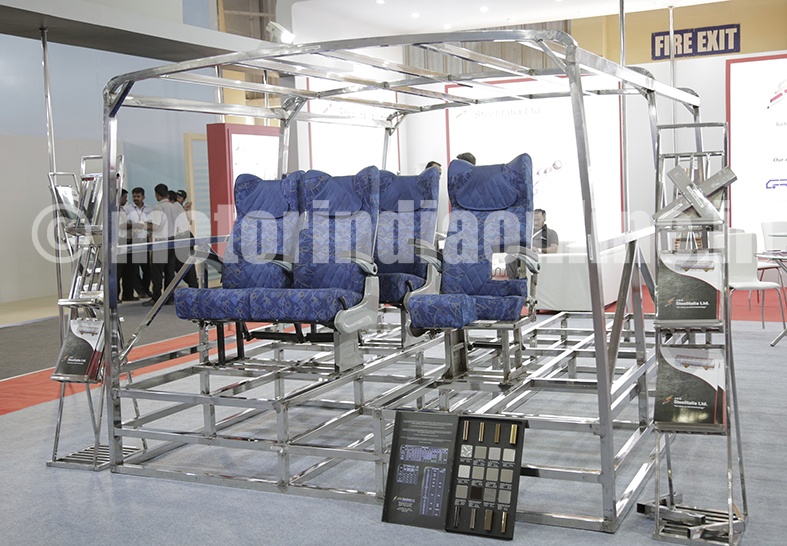
When we look at bus technology, there are primarily two parts: the chassis and the bus body technology. We have challenges ahead in terms of both chassis and the body. While BS-IV is just round the corner, the leapfrog to BS-VI is also just three years away making it a quite a tough time target to achieve, given the fact that no other country has made the jump from Euro III to Euro VI in three years’ time. The target having been set cannot be easily revoked it at all the industry is unable to achieve it because of the kind of investments being made by refineries and by companies towards alternative fuels and drivelines.
Parallely, we are also moving towards hybrid and electric vehicles. The Government’s FAME policy has fuelled the development of electric vehicles and related solutions and not to mention the growing interest towards hybrids. Globally, though India is one among the few countries which designs, develops, manufactures and sells commercial vehicles, we lag when it comes to technology to replace combustion engines. With a greater push from the Government, we could expect this short term snag to be overcome.
JSS Steelitalia
On the bus body side, the greatest emphasis is on the implementation of the bus body code, a need of the hour and an important step up in bus body building side which we have been deferring. There are challenges and is a pain for many body builders but it is a No-Go situation which needs to be mitigated. The major crux in bus body code is the rollover protection and its emphasis on the structure of the bus body.
Seizing the opportunity, JSS Steelitalia made its presence felt at last year’s Busworld India in Bangalore with its stainless steel (SS) structures for bus bodies. The company is an Indo-Italian JV in which Inox Market Services s.r.l. of Italy and Jensita Holdings have years of experience in processing and distribution of SS tubes worldwide, giving the company a sound technical and commercial understanding of the tubes business. The Indian partner Jindal Stainless Steelway Ltd., a leading company in processing of SS, will give an advantage of using immaculately slit, burr free, properly wound coil to produce precision weld and fin cut, scarfed tubes. It offers SS tubes in various forms like round, oval, rectangular based on customer need.
The buses and coaches made in India are still built with carbon steel tubes and even global OEMs follow the same approach here. With Indian bus manufacturers yet to migrate to SS structures, JSS Steelitalia has identified a niche opportunity in the market. SS tubes are not only largely corrosive resistant, but also help reduce the weight by as much as 400 kg in the super structure of the bus. Not just selling tubes, JSS Steelitalia also has a technical team that helps bus bodies get certified for roll over compliance. It would be interesting to see the kind of traction in this sector in the near future.
On the component side, there are a number of suppliers, both home-grown and multinational ones who are looking to make it big in India, fully aware of the kind of potential the country holds and equally wary of the challenges bundled along.
Denso
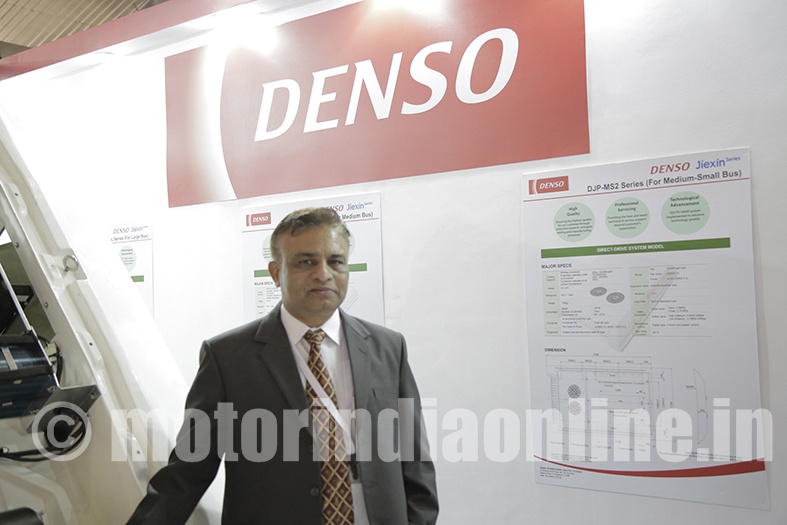
Denso, a leading global manufacturer of various systems for automobiles, presented innovative technologies at Busworld India last year, with its electric compressors for air-conditioning being the pick of the lot. The technology significantly reduces vibrations associated with conventional compressors and since it is independent, the load on the engine is negligible, thereby improving the fuel performance. With the use of electric compressors, the gas line is very much reduced as it is placed over the roof top units, ensuring reduced usage of gas while also curbing leakage.
Another technology from Denso is its electronic air cleaner used for cleaning the air inside the bus. The cleaner is installed in the return air duct of the AC, ionizes the dust particles in the air when passed through it, subsequently neutralizing the magnetized particles when they come out. The system is a clean air technology and does not generate any waste.
Actia
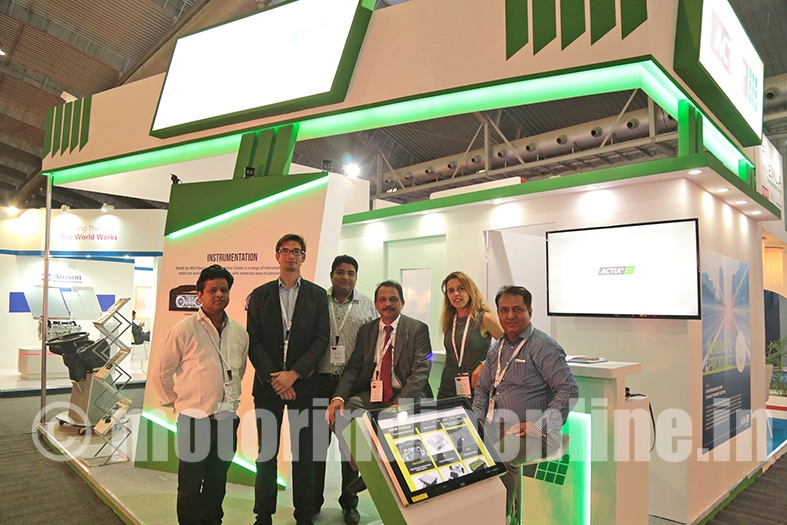
French firm Actia is an on-board systems specialist and a partner for major bus and coach manufacturers across the globe. Headquartered in Noida in India, Actia offers integrated and innovative solutions for city and inter-city passenger transport, its latest addition to the tradition of electronic clusters being a new instrument cluster with an 8-bit color TFT screen. One could choose from 256 colors from the screen which is large enough for a comfortable night drive. The instrument cluster can manage the entire electrical architecture of the bus, meaning it can essentially work as a master and integrate up to 10 modules like program and body control module. While multiplexing has eased vehicle electricals in a big way, products such as these would further bring down the complexity.
Another promising product demonstrated by Actia at Busworld India was its modular and ergonomic dashboards. We call this more of integrated dashboard as it integrates steering wheel, cluster, switches and controls for bus operation. These are made to meet tough VDV and EBSF standards and have an adjustable console for better adaptation to the driver. The cluster itself can be customized with 8 optional switches and choice of colored trim parts. It works on a kind of plug and play operation while the dashboard can be used for a wide range of applications such as city and inter-city buses. This is a feature-rich console integrating most of the electronics related to driver work area and has high level MMI capabilities.
TM seating
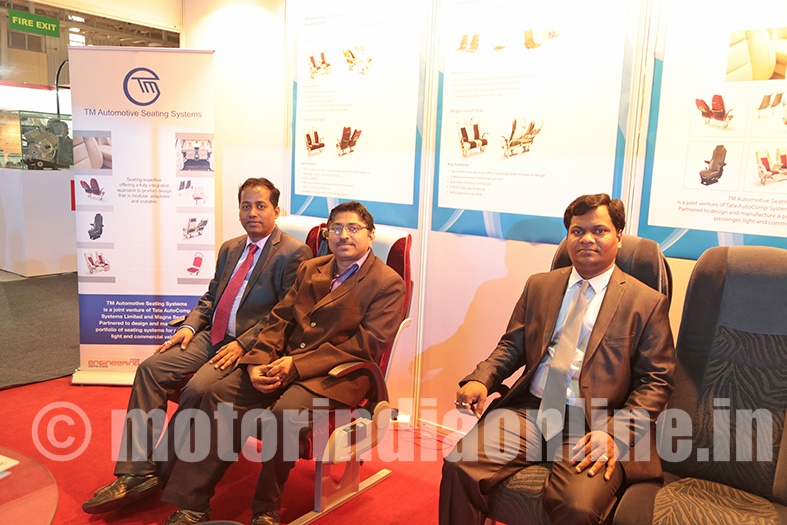
TM seating, a new entrant in Indian bus seating industry, is a joint venture between Magna Seating and Tata Auto Components. Its product portfolio mainly includes seating systems for buses and trucks. With the average duration of bus journeys considerably increasing, going up to 30 hours in some cases, it is not just the seat cushion which keeps passengers comfortable but sophisticated features that come with the seats as well. A growing number of customers are demanding features like individual arm rest, seat pockets, coat hangers, etc., and with such features becoming more of a standard, TM Seating displayed truly sophisticated and light-weight seats at Busworld India. USB charging points, horizontal movement of seats, vertical grab handles on seatback and lumbar support are some of the new features in TM seats that add to the comfort level of passengers.
TM Seating also has a wide choice of seating systems for city application. With the Indian market completely switching towards molded seats from fabricated ones, TM Seating is ready with relevant technologies in that area as well. TM’s city bus seats have a cantilever structure which gives them the advantages of being lightweight, gives a provision of placing the luggage underneath the seat and makes it is easy for floor cleaning. The total design technique used to develop the seats is based on cantilever support which is done through the bus stanchions. The company claims that the seats are lighter in weight by up to 10 per cent compared to conventional ones, achieved through a combination of factors including choice of material, usage of thinner pads, etc. As the market moves towards electrics and hybrids, lightweight components and systems would play a key role in buses and technologies of this type would add a lot of benefits to the customers.
Sphere
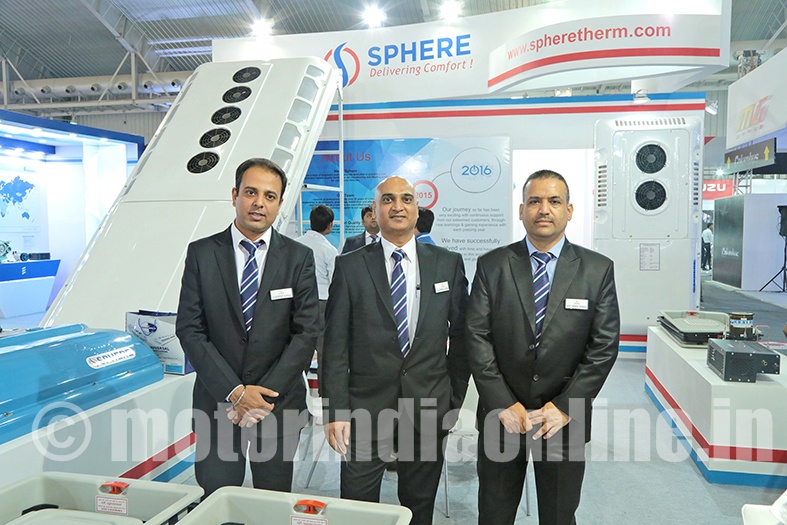
Sphere, an Indian company based out of Faridabad, showcased its electric AC unit at Busworld India. The 30 kw electric AC unit is powered by a 60 cc DC compressor as against the conventionally-used 600 cc compressor, making it a highly efficient product. Apart from designing and manufacturing bus air-conditioners for small to large buses with cooling capacity ranging from 5 kw to 47 kw, Sphere makes emergency exists and ventilators which it currently supplies to STUs including BMTC and KSRTC.